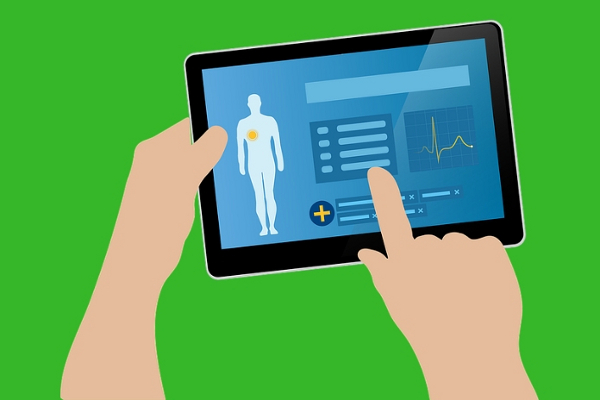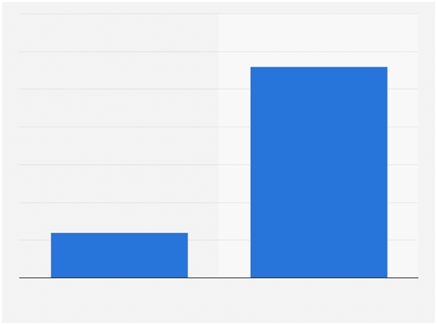Smartphones have revolutionized the world of healthcare by making medical service provision easier. With the global rise in the use of smartphones in the various sectors of healthcare, an array of mobile apps have been and are being developed to aid patients and doctors. For patients, it is easier to monitor their health, and for doctors, it is easier to stay up to date with relative data concerning everything from patients to drug information to research to what not. Technology saves times and is easily accessible to anyone and everyone.


Mobile health apps are a market with great potential with endless business opportunities. The collision between the fast and happening digital industry and the rather slow-paced healthcare industry has resulted in a revolution in the market. New and innovative mHealth apps are exhibiting progressive growth throughout the past few years showing great promise by introducing and adopting new technologies, business models and work models that are designed to transform the world of healthcare. In economies like the US and Europe, mHealth apps are being employed for everyday activities to run businesses thereby solidifying the expectations associated with their growth and expansion.
– Medical Apps and the Future of Healthcare
The future of healthcare is medical apps. Here are some of the reasons why:
1) Cooperative Doctor-Patient Relationship: Normally when someone needs to address a health concern, they have to make an appointment with their physician after which they are referred to a specialist. With medical apps, the relationship between a doctor and his patient is a lot more cooperative than it was before. From symptoms checking to monitor levels to prescriptions to medication reminders to booking appointments; you name it, and there is a solution present. Medical apps have eased access for both doctor and patient by eliminating many limitations and have thus enabled more reliable and honest information records.
2) Cost Effective: There is no denying the fact that visits to the doctor are pricey. With the advent of medical apps, virtual appointments are now a possibility and much cheaper than an in-person consultation.
3) Increased Patient Demand: Owing to the increased control over their health plan and the cost-effectiveness, mobile medical apps are in high demand. The most popular apps in demand right now are concerned with exercise, weight loss, sleep, meditation, pregnancy and men’s and women’s health. According to the Research Now Group, an estimate of 50% of doctors are expected to introduce medical apps in their practices in the coming 5 years.
4) Doctor’s Response: In a recent survey, it was reported that 15% of doctors in the US are employing medical apps for patient discussions. While this may not be the wisest decision in the part of the doctor, another online study reported that a staggering 66% of American citizens would much rather use an app to solve health-related concern than visiting a doctor. This proves that the shift is almost necessary considering the circumstances. Besides, apps are making the lives of doctors easier by keeping electronic patient medical history records, enabling prompt communication between the doctor and patient, easing medical information referencing, and overall simplifying the diagnostic and examination process.
5) Improved Mental Health: Mental health is the leading cause of disability in the United States in ages 15 to 44. The advent of braintest apps in the mental health arena will push us one step closer to decreasing the stigma concerning mental illness. From detecting early mood shifts that may be signaling the occurrence of an underlying mental condition to detecting initial signs of loneliness, depression or stress to tracking a person’s behavior in different surroundings by analyzing their GPS; medical apps are becoming a revolutionary part of mental health correction.
– Mobile Medical App Market
According to mHealth Markets Worldwide report, the mobile medical app market was estimated at almost $490 million in 2015 after being worth only $85 million in 2010. The report also concluded that the market is expected to rise even further at an even faster rate than the overall app market with a rate of 28% through 2020. The potential calculated market for medical apps in 2020 is estimated to be $1.7 billion compared to the overall total app market potential of approximately $61.4 billion with a 20% growth rate. When it comes to revenue, medical apps have exhibited much faster growth than any other app categories. When we talk about market shares, however, the figures are relatively low. In 2010, the medical market share in the total mobile app market was only 1.73% after competing with entertainment, social networking, and gaming apps.
A study conducted in 2013 forecast the value of the global mHealth market from 2012 to 2020. The number of apps to be downloaded globally was expected to reach an all-time high in 2016 with an estimate of 3.2 billion downloads which is approximately double of what was recorded in 2013.
In 2017, the mobile medical app market size reportedly estimated the total global market to be worth $2.4 billion. It is expected that the figures will soar as high as $11 billion by 2025.


As is the case with everything, with a big set of pros come a few cons. One point of major concern is a major security breach that comes with hacking and personal privacy problems such as the transfer of data without encryption. Additionally, there is another rising concern about the loss of patient-doctor trust and understanding as one will not be able to interact with one another in person. Despite its drawbacks, in conclusion, mobile health app development is a leading market today that is creating opportunities for everyone from doctors to medical institutions to healthcare workers such as nurses, assistants, etc. From faster service to cost-effectiveness to ease of access, the benefits of medical apps prove that they are undoubtedly the future of health care aiming to someday replace some of the doctor’s responsibilities and jobs.

























